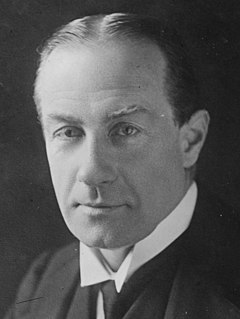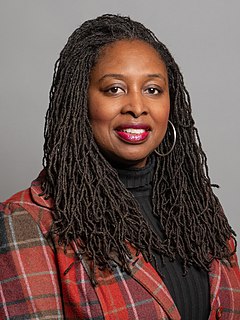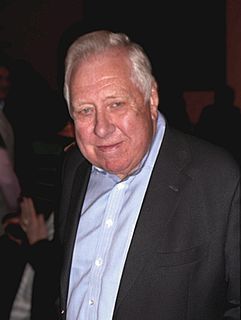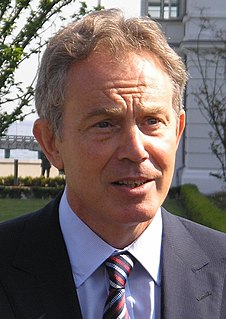
The Air Ministry was a department of the Government of the United Kingdom with the responsibility of managing the affairs of the Royal Air Force, that existed from 1918 to 1964. It was under the political authority of the Secretary of State for Air.

The Secretary of State for War, commonly called War Secretary, was a secretary of state position within the Government of the United Kingdom, which existed from 1794 to 1801 and from 1854 to 1964. The Secretary of State for War headed the War Office and was assisted by a Parliamentary Under-Secretary of State for War, a Parliamentary Private Secretary who was also a Member of Parliament (MP), and a Military Secretary, who was a general.
Reginald Maudling was a British politician who held several Cabinet posts, including Chancellor of the Exchequer. From 1955 until the late 1960s, he was spoken of as a prospective Conservative leader, and he was twice seriously considered for the post; he was Edward Heath's chief rival in 1965. He also held directorships in several British financial firms.
A parliamentary secretary is a member of Parliament in the Westminster system who assists a more senior minister with their duties. In several countries, the position has been re-designated as assistant minister.

The Scottish Office was a department of the United Kingdom Government from 1885 until 1999, exercising a wide range of government functions in relation to Scotland under the control of the Secretary of State for Scotland. Following the establishment of the Scottish Parliament in 1999, most of its work was transferred to the newly established Scottish Executive, with a small residue of functions retained by the Scotland Office.

A Parliamentary Under Secretary of State is the lowest of three tiers of government minister in the UK government, immediately junior to a Minister of State, which is itself junior to a Secretary of State.

The Conservative Government of the United Kingdom that began in 1922 and ended in 1924 consisted of two ministries: the Law ministry and then the first Baldwin ministry.

Stanley Baldwin of the Conservative Party formed the second Baldwin ministry upon his reappointment as Prime Minister of the United Kingdom by King George V after the 1924 general election. His second ministry ended following the so-called "Flapper Election" of May 1929.

Dawn Petula Butler is a British Labour Party politician who has been the Member of Parliament (MP) for Brent Central since 2015.

The Conservative government of the United Kingdom that began in 1957 and ended in 1964 consisted of three ministries: the first Macmillan ministry, second Macmillan ministry, and then the Douglas-Home ministry. They were led by Harold Macmillan and Sir Alec Douglas-Home, who were appointed respectively by Queen Elizabeth II.

The Parliamentary Secretary to the Board of Education was a junior ministerial office in the United Kingdom Government. The Board of Education Act 1899 abolished the Committee of the Privy Council which had been responsible for education matters and instituted a new Board of Education from 1 April 1900. The Board was headed by a President. From the appointment of the Marquess of Londonderry as President in the Balfour government in August 1902 the post of Parliamentary Secretary to the Board was established.

The office of Permanent Secretary of the Admiralty was the senior civil servant at the Admiralty, the department of state in Great Britain responsible for the administration of the Royal Navy. He was head of the Admiralty Secretariat, later known as the Department of the Permanent Secretary. Although he was not a Lord Commissioner of the Admiralty, he was as a member of the Board, and did attend all meetings. The post existed from 1702 to 1964.
Donald Euan Palmer Howard, 4th Baron Strathcona and Mount Royal,, was a British Conservative politician.

A deputy leadership election for the Labour Party in the United Kingdom took place on 2 October 1988 when John Prescott and Eric Heffer challenged Labour's incumbent Deputy Leader Roy Hattersley. Hattersley had served in the position since 1983.

The Ministry of Defence was a department of the British Government responsible for defence and the British Armed Forces.
The New Year Honours 1964 were appointments in many of the Commonwealth realms of Queen Elizabeth II to various orders and honours to reward and highlight good works by citizens of those countries. They were announced on 1 January 1964 to celebrate the year passed and mark the beginning of 1964.

Terri Megan Butler is an Australian politician. She is a member of the Australian Labor Party (ALP) and has represented the Division of Griffith in the House of Representatives since a 2014 by-election. She worked as an industrial lawyer prior to entering parliament.

A deputy leadership election for the Labour Party in the United Kingdom took place on 2 October 1983 to replace incumbent Deputy Leader Denis Healey. Healey had served in the position since 1980, becoming deputy leader at the same time that Michael Foot became party leader. Foot and Healey had both announced their resignations after the general election on 9 June 1983, in which a disastrous performance left the Labour Party with just 209 seats in parliament.

The third Blair ministry lasted from May 2005 to June 2007. The election on 5 May 2005 saw Labour win a historic third successive term in power, though their majority now stood at 66 seats – compared to 167 four years earlier – and they failed to gain any new seats. Blair had already declared that the new term in parliament would be his last.
The 1970 Dissolution Honours List was issued on 2 June 1970 to mark the dissolution of the United Kingdom parliament prior to the 1970 general election.
This page is based on this
Wikipedia article Text is available under the
CC BY-SA 4.0 license; additional terms may apply.
Images, videos and audio are available under their respective licenses.











